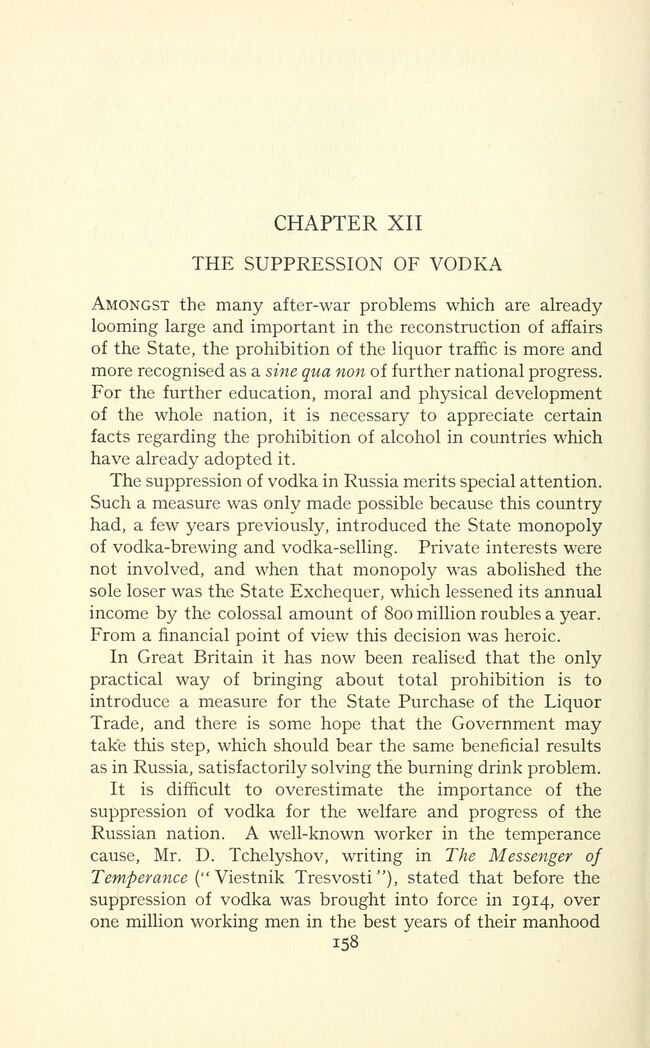
Full resolution (JPEG) - On this page / på denna sida - XII. The suppression of vodka

<< prev. page << föreg. sida << >> nästa sida >> next page >>
Below is the raw OCR text
from the above scanned image.
Do you see an error? Proofread the page now!
Här nedan syns maskintolkade texten från faksimilbilden ovan.
Ser du något fel? Korrekturläs sidan nu!
This page has never been proofread. / Denna sida har aldrig korrekturlästs.
CHAPTER XII
THE SUPPRESSION OF VODKA
Amongst the many after-war problems which are already
looming large and important in the reconstruction of affairs
of the State, the prohibition of the liquor traffic is more and
more recognised as a sine qua non of further national progress.
For the further education, moral and physical development
of the whole nation, it is necessary to appreciate certain
facts regarding the prohibition of alcohol in countries which
have already adopted it.
The suppression of vodka in Russia merits special attention.
Such a measure was only made possible because this country
had, a few years previously, introduced the State monopoly
of vodka-brewing and vodka-selling. Private interests were
not involved, and when that monopoly was abolished the
sole loser was the State Exchequer, which lessened its annual
income by the colossal amount of 800 million roubles a year.
From a financial point of view this decision was heroic.
In Great Britain it has now been realised that the only
practical way of bringing about total prohibition is to
introduce a measure for the State Purchase of the Liquor
Trade, and there is some hope that the Government may
take this step, which should bear the same beneficial results
as in Russia, satisfactorily solving the burning drink problem.
It is difficult to overestimate the importance of the
suppression of vodka for the welfare and progress of the
Russian nation. A well-known worker in the temperance
cause, Mr. D. Tchelyshov, writing in The Messenger of
Temperance (" Viestnik Tresvosti"), stated that before the
suppression of vodka was brought into force in 1914, over
one million working men in the best years of their manhood
158
<< prev. page << föreg. sida << >> nästa sida >> next page >>